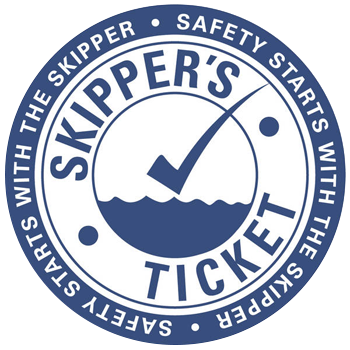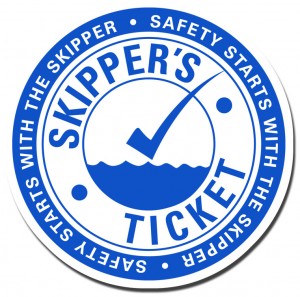Skippers Ticket Rules
When doing your recreational skippers ticket theory assessment, you will not just be asked about boating safety. Some of the questions you are given may be about the general rules and regulations of having your RST. It is important to know these things, not only so you can pass your exam, but also so you know your responsibilities as a skipper of a vessel.
This article will provide a brief outline of some of the rules and regulations you may need to know as part of your skippers ticket assessment. For more information we STRONGLY suggest referring to your up-to-date skippers ticket workbook, available online from the Department of Transport’s skippers ticket page. Click Here to download.
Skippers Ticket Duty of Care
Whether you are skippering an offshore gas exploration vessel or just your Swan River tiny, you are equally as responsible for your actions. You are accountable for the safety of not only yourself, but also your passengers. You are also expected to not do anything that endangers ant other vessel or person and you are expected to be able to assist anyone who may need help.
Enforcement
Officers from the Department of Transport, Water Police, Customs and the Department of Fisheries, and other government agencies, are all involved in the enforcement of marine acts and regulations. They regularly are involved in the checking of vessels for registration, safety gear etc, as well as monitoring and enforcing the safe and lawful behaviour of vessel users. There are a number of infringements and penalties that can be issued to a skipper who is found to have committed an offence. These can vary form a simple fine, to the suspension of an RST and even to a prison sentence. You can avoid any hassles with enforcement officers by simply obeying the skippers ticket rules.
Skippers Ticket ID
You are required by law to carry your valid RST and be willing to show it to an authorised officer upon request when you are using your vessel. If you are an RST holder and you change your address or your name, you must notify the Department of Transport within 21 days.
Vessel Registration Rules
Just like your road vehicle, vessels in Western Australia are required to be registered with the Department of Transport and are subject to annual registration fees. If you have brought in a registered vessel from interstate, you have a 3 month grace period. For vessels from the Northern Territory, you have 30 days. Registration is required for all motor powered vessels.
Registration Exemptions
The following vessels, assuming they are not powered by a motor, are exempt from the normal WA vessel registration rules:
- Yachts
- Canoes, and other paddle craft such as kayaks and surf skis
- Tenders
Tender Exemption
A tender is exempt from registration requirements if:
- it is no more than 3.1 metres in length
- does not have a motor exceeding 5hp (3.73kw)
- is used as a lifeboat or transfer vessel for a parent vessel
- not used in isolation from the parent vessel
Registration Label
When your vessel is registered, the DoT will provide you with registration stickers. These must be positioned appropriately depending your vessel.
For motorboats, the sticker should be placed midship, on both port and starboard sides, in a clearly visible position. That means they should not be under the flare of the bow and not to close to the water line.
Yachts are required to place their label on the hull immediately forward of the transom.
Tenders, although not registered, are required to have registration labels that match the registration of the parent vessel. These are to be placed on both sides of the hull, forward of the transom.
PWC (jetskis) must have registration labels on both sides of the hull in a position that makes them clearly visible.
For more information on vessel registration, including information on transferring registration, please visit the DoT’s information page.


